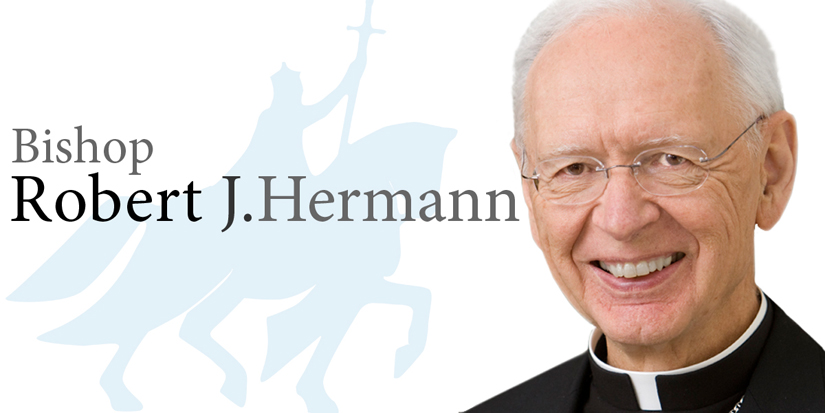 The readings for the Sixth Sunday in Ordinary Time make one simple point: If we embrace the spiritual intent of God’s law, then our inner spirit will revel in the peace that only comes from God who created us to hunger for peace.
The readings for the Sixth Sunday in Ordinary Time make one simple point: If we embrace the spiritual intent of God’s law, then our inner spirit will revel in the peace that only comes from God who created us to hunger for peace.
However, if we try to make the law fit our own inner desires, we will be restless and discontent, distant from God and from our neighbor.
In the first reading, Sirach tells us: “If you choose you can keep the commandments, they will save you; if you trust in God, you too shall live; He has set before you fire and water; to whichever you choose, stretch forth your hand.” Here God tells us that if we choose God’s commands, we will be at peace because they lead us to participate in the inner life of God.
Next, He makes it clear that we will get what we choose. Another way of putting it is this: I have chosen to be what I am. If I have chosen well, I am at peace. If I have not chosen well, I am in misery.
Sirach continues: “The eyes of God are on those who fear Him; He understands man’s every deed. No one does He command to act unjustly, to none does He give license to sin.” God is watching over each of us. If we err from the commands of God, His loving oversight is with us. He won’t force us to choose His way, but He will reward our behavior when we choose rightly.
In the second reading, Paul teaches us about an inner wisdom of God. “Rather, we speak God’s wisdom, mysterious, hidden, which God predetermined before the ages for our glory, and which none of the rulers of this age knew; for, if they had known it, they would not have crucified the Lord of glory.” This wisdom doesn’t come from some superior human mind, but rather from the Spirit of God, when we are in quiet prayer, meditating on God’s word and His love.
Paul continues: “What eye has not seen, and ear has not heard, and what has not entered the human heart, what God has prepared for those who love Him, this God has revealed to us through the Spirit.” Human brilliance doesn’t gives us this inner wisdom, but rather the Holy Spirit in prayer and contemplation.
Paul concludes with this powerful statement: “For the Spirit scrutinizes everything, even the depths of God.” What is good enough for the Spirit of God is good enough for me. I rest my case with the Holy Spirit.
The following extensive Gospel reading follows the passage on the Beatitudes. I prefer reading the Beatitudes, but this follow up instruction is necessary if we are to arrive at living the Beatitudes.
He begins each section by pointing out how others have interpreted the commands of God. In explaining God’s inner meaning, Jesus leaves us with a way of embracing the law of God so as to uplift our spirits.
God never changes His laws or drops out portions of His commands. Rather, He insists that His commands be kept in all their integrity. Jesus tells us the scribes and the Pharisees misinterpret God’s commands and therefore will not enter the kingdom of heaven.
He then quotes some of the Ten Commandments, but He gives us a deeper interior meaning of those commandments. “You have heard that it was said to your ancestors, you shall not kill; and whoever kills will be liable to judgment. But I say to you, whoever is angry with his brother will be liable to judgment; and whoever says to his brother, ‘Raqa,’ will be answerable to the Sanhedrin; and whoever says, ‘You fool,’ will be liable to fiery Gehenna.”
Here Christ goes behind the external action of killing, to the interior movement that leads to murder, namely anger. Christ continues: “If you bring your gift to the altar, and there recall that your brother has anything against you, leave your gift there at the altar, go first and be reconciled with your brother, and then come and offer your gift.” If I am at odds with my brother, I am also at odds with my God, therefore my so-called sacrifice is really no sacrifice at all.
At this point, it would be good to emphasize the importance of developing a deep devotion to the Holy Spirit, so that we can see our actions in the light of the Holy Spirit.
Before we do an examination of conscience, it’s helpful to first ask the Holy Spirit to help get us in touch with one or two movements of consolation during the last 24 hours. In this way, we start with gratitude for some blessing we have received in the past day. If we don’t do this, we may slip into an inner negative judgment of our selves and really enter into the spirit of condemnation. Jesus didn’t come to condemn the world but to save it. He has come to defeat the spirit of condemnation and the spirit of self-condemnation.
Jesus wants us to have His attitude and His Father’s attitude toward ourselves. The Holy Spirit of truth will give us this attitude, which will leave us at peace, not at war with ourselves and with others.
Always remember, the inner meaning of God’s laws is always intended to nurture the truth in our inner spirits. The Holy Spirit will always help us if we ask.